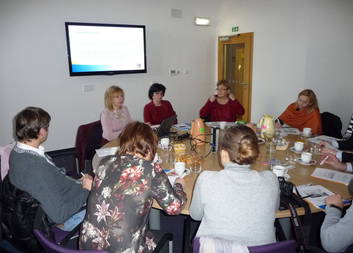Caritas CR, in close cooperation with Sociopolis NGO, the Moldovan Ministry of Labour, Family, and Social Protection and other NGOs working in the field of foster care plan, helped Moldovans develop their system of foster care.
2013, with the help of Caritas CR, a law was created and passed on protection of vulnerable children and children without parental care. Caritas CR followed the success of the project called “Strengthening the system of social protection of vulnerable groups of children in Moldova,” with training for 850 people working on children’s social protection across Moldova. Specifically, the programme was designed to fan out to 350 caregivers and foster parents, 380 community centre workers (i.e. social workers, psychologists, and educators from children’s day centres) and 120 local authorities’ workers of social-juridical children’s protection. The training was led by a team of Moldovan specialists, assisted by a Czech expert and the Moldovan Ministry of Labour, Family, and Social Protection.
Eight Moldovan specialists arrived in the Czech Republic in December.During their one-week programme they were introduced to some examples of good practice, methodology and existing systems of foster care in the Czech Republic. Experts from the organizations LUMOS, NATAMA - substitute family care, authority for social-juridical children’s protection and AMALTHEA shared their knowledge and experience. The Moldovan specialists got a clear understanding of how problematic families are dealt with, what the competences of the individual participants of substitute family care and its workers are, what the procedures look like and how to establish cooperation between state authorities and NGOs. They learned about the process of entrusting a child to foster care, about the most frequent problems of foster families and the possible solutions. They were also interested in the compulsory education of foster parents.
Following the training in the Czech Republic, the Moldovan team created didactic materials and a curriculum for the training of social workers and foster parents in Moldova. The training materials were created having several factors in mind, namely the results of a survey of educational needs, the foreign experience and the examples of good practice applicable to the Moldovan context.
Sharing experience and knowledge in the field of child rearing and child education hascontinued following the project as the training materials will be used by the Moldovan Ministry of Labour, Family and Social Projection to train foster parents and children’s social protection workers organized by the Moldovan Ministry of Labour, Family, and Social Protection.
The project was funded by the Czech Development Agency.





